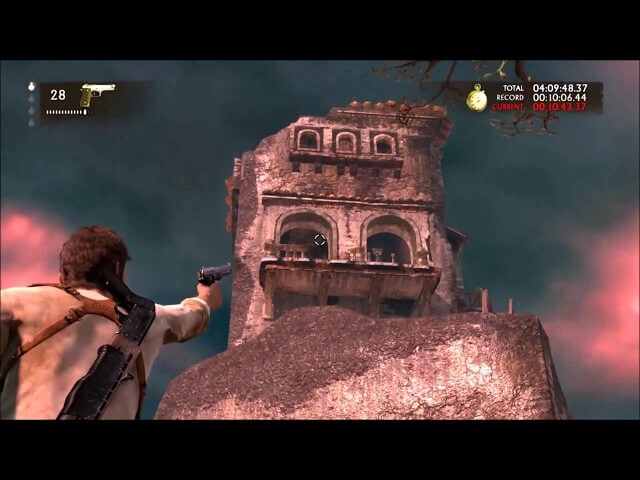The ridiculous quest to beat every Uncharted game using only headshots

My God, Man
Over in this week’s What Are You Playing This Weekend? thread, Gameological’s resident avant-garde Let’s Play artist, Staggering Stew-Bum, gave us an update on his latest challenge run: The beat all four Uncharted games using only headshots. It’s an insane proposition, but he’s already onto Uncharted 2 and has provided a heavily edited video of his headshot-only run through Uncharted 1.Enjoy.
Back To The Past
This week, I wrote a bit about my experience with the Crash Bandicoot N. Sane Trilogy, a very pretty remake of the first three Crash Bandicoot games. I came away from it thinking these games were a messy artifact from one of gaming’s rough transitional periods, but the tremendous reaction to this collection got me thinking about nostalgia and ultimately convinced me that maybe, just maybe, it’s okay if people just want to have some fun enjoying something that struck a chord with them at a very specific point in their lives. Down in the comments, Captain Internet got to thinking about how gaming nostalgia is tougher to experience than other media.
I find it interesting that nostalgia hunting or simply experiencing older forms of the medium is so much more of a trial with games than with other media. With films and books, you’ll only find something jarring if it contains a reference to an idea of the future—usually a character using a computer with a text interface or a dedicated videophone and so on. With books, there might be some old language or concepts to look up, but films aren’t nearly old enough to require that yet.
With games, you usually have to find something capable of running the thing, then a TV with the correct input, then something to remove the dead skin and Nutella from your yellowing controllers—and then, after getting it all working, you may find that you just can’t put up with the shit that you used to. Having to turn your character in the direction you want to walk before walking that way. Instant deaths, three lives and limited continues. Manual saves. Obscure puzzles that require a notebook. Repetitive music that loops after 16 bars. Horrible, horrible early 3-D graphics. The 4:3 aspect ratio. CGA. Unexplained hot keys. Requiring a manual. Requiring a physical joystick.
I tried replaying the original Fallout earlier this year, and by God was it a slow and painful experience. I still love it to bits, but I’ve reached a point where I’m happy just to remember these things rather than put myself through them again.
Elsewhere, The Golden Eel took me to task for my criticisms of the games, mentioning that they hold up “with the caveat that they do have that early ’90s difficulty still left over from the 2-D days.” [I do want to mention that high difficulty and frustration isn’t an inherently bad thing—I’ve gushed about Spelunky and Bloodborne and fighting games all over this damn website. Difficulty and frustration become a bad thing when a game’s design makes them feel unfair, and that’s my beef with Crash.] This prompted an interesting conversation about what we expect and get out of games, and how that’s changed over the decades. Here’s Unexpected Dave:
Expectations have changed. In the ’80s, it never felt like we “needed” to see a game’s ending in order to get the full experience. A greater number of games continued indefinitely, like arcade games. And we tended to rent games more often than we would buy them in those days, so our time with a game was often too short to beat it. In that context, setting new personal bests for our progress was enough. Beating a game felt like a rare and special achievement.
But by the ’90s, beating a game had become increasingly more important. Games were more story-based, so players would get more frustrated if they couldn’t see it play out. Battery saves had become the norm, so players no longer needed to start from scratch every time. Developers or publishers apparently decided that making games a little easier and more accessible would make them appeal to a wider audience. Excessive difficulty attracted a stigma; it was seen as a “crutch” that developers used to hide the fact that their games were short, shallow, or just poorly designed in general.








































